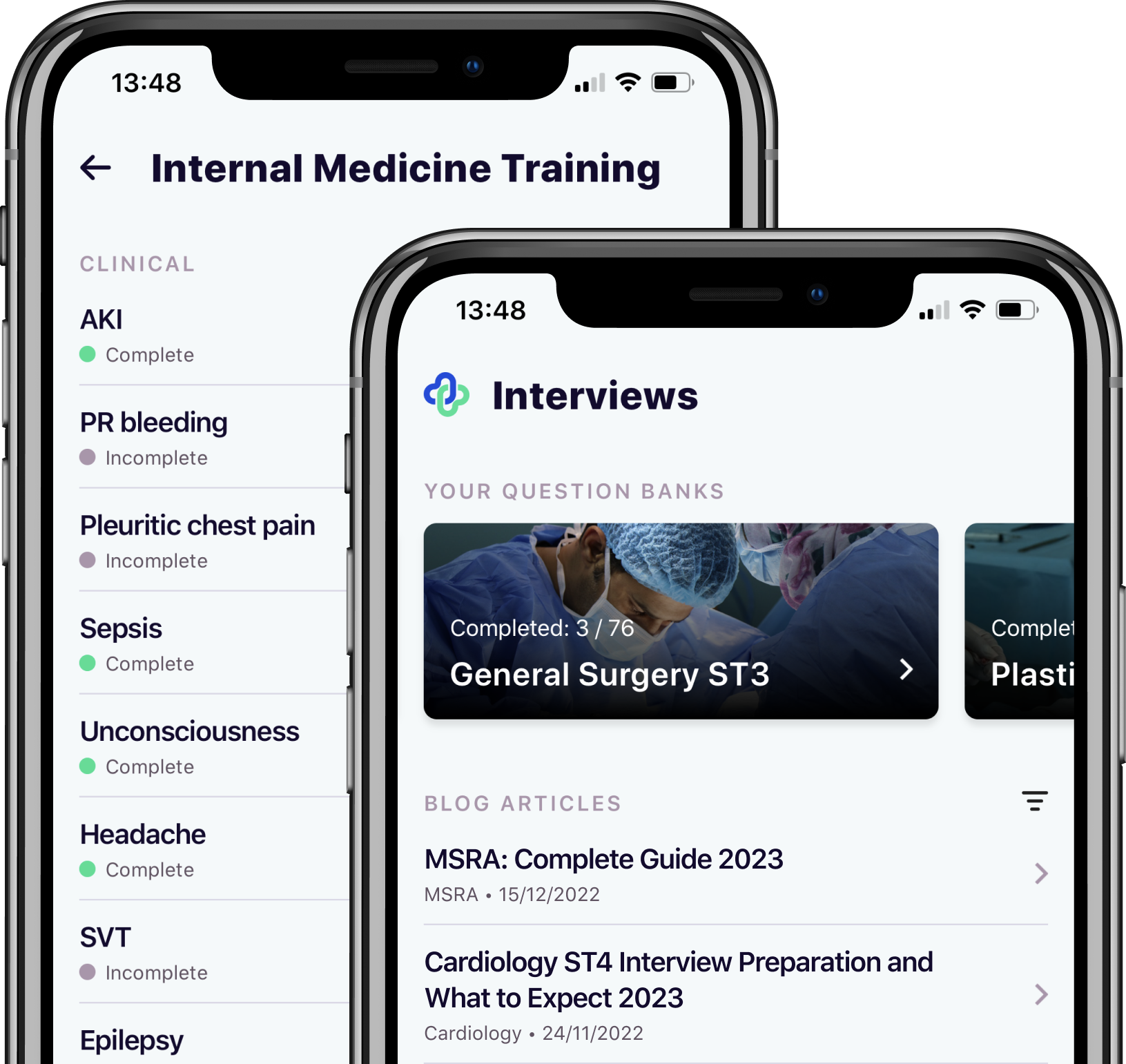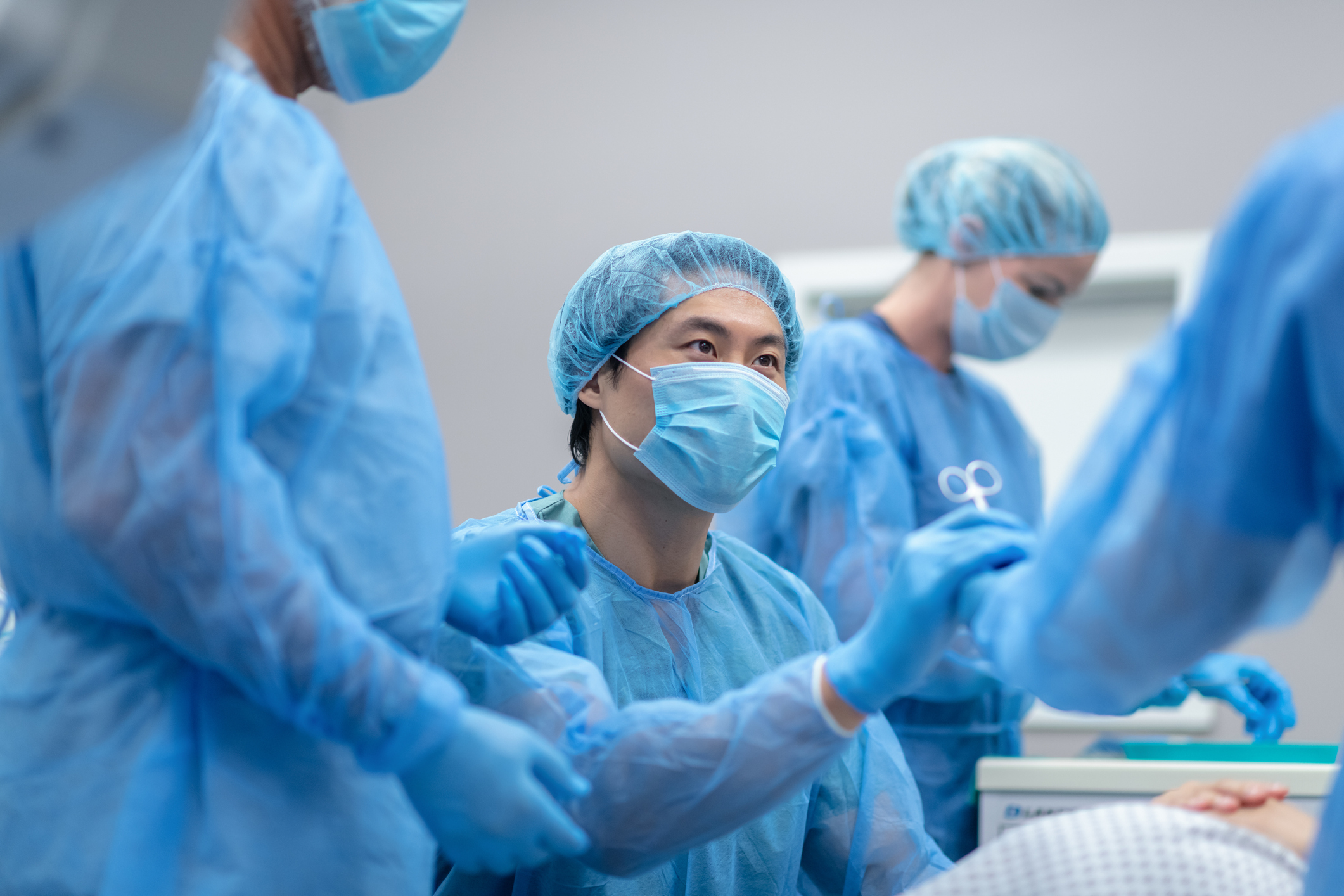
Core Surgical Interview Tips 2024
This year, the Core Surgery Training (CST) interviews take place between Monday 19th February and Wednesday 28th February 2024, using a new system called Qpercom, which is replacing Microsoft Teams.
Interview technique
Interview technique and how you present yourself to interviewers is fundamental to success in the interview. While knowledge and content of answers will give you marks, if you present yourself professionally and confidently, you will come across as someone they see as a future surgical trainee and colleague.
General interview tips/ techniques
These should be practised before the interview. Candidates often find recording themselves on video useful to fine-tune their technique. You can also practise with colleagues and ask for feedback specifically on how you come across.
Body language
- Smile: while you will be nervous, this will convey your confidence and enthusiasm; it may also make you feel calmer (especially if they reflect on this as they often will).
- Sitting position: studies suggest sitting slightly forward with feet firmly on the ground with hands resting on your thighs/ knees or locked is the optimum position. However, it is best to sit in a position that you are comfortable in, rather than appearing overly forced.
- Eye contact: ensure you make eye contact with interviewers/ camera as much as possible.
- Active listening: when being asked questions, nodding understanding, maintaining eye contact and tilting your head can show you are engaging with interviewers and listening attentively.
- Hands: keep hands firmly on knees/ lap and consider raising them to use gestures when emphasising a point (but be careful not to over gesture as it can be distracting).
Speech/ verbal communication
- Speak clearly and confidently: this may sound obvious but make sure you concentrate on doing this.
- Pace of speech: some people can talk very quickly when nervous. It is important to strike the right balance between talking too quickly, or slowly, with pauses as necessary.
- Pauses: do not be afraid of taking a short pause before answering the questions (while avoiding ums and errs). Brief pauses in your answer/ presentation can also be useful following key points.
- Length of answers: when nervous the temptation may be to overelaborate = waffling. Try to answer points as concisely as possible to ensure you do not run out of time.
- Try to stop ‘verbal tics’: these are most commonly ‘umms’ and ‘errs’ or maybe more subtle words like ‘so’ or ‘right so’ at the start of every answer. These make you sound less fluent to the interviewer so you should reduce them through practice – either with colleagues or by recording answers.
- Vocal tonality: changing inflection and emphasis on words can keep the interviewer engaged and prevent you from sounding monotonous and boring.
- Enthusiasm: try to get your enthusiasm across when delivering answers based on your voice tones, smiling (if appropriate), etc.
Online interview considerations
- Ensure you have secure and reliable internet for the interview.
- Make sure your computer is fully charged and plugged in.
- If at home, ensure it is a quiet room, free from background noise, and avoid the risk of disturbance (for example leave a note on the door saying do not ring).
- Have a blank/ neutral background or wall behind you without distractions.
- Test the camera for clarity and frame yourself in the middle of the image.
- Lighting
- Check the lighting of the area of the room is a clear image without too many shadows.
- Natural light is most flattering and should be behind the camera in front of you.
- Use of artificial lighting pointed towards you can also work well. Try this out beforehand.
- Sound
- Test your microphone sound and audio.
- Test the acoustics of a room, as a carpeted room with soft furnishing sounds softer compared to an echoey kitchen.
The day before
It is important to reduce any anxiety on the day of your interview by preparing yourself fully the day/ or a few days before. Here are some tips:
- Layout an outfit – bought or dry cleaned in advance, shoes clean, etc. Men = smart suit with plain shirt and tie, women = smart trousers or skirt and a shirt +/- a jacket. You will be more confident if you are comfortable with your appearance but plan and make sure it is appropriate.
- Plan breakfast/ lunch – this may sound obvious but anything to reduce stress is important.
- If your interview is later in the day, do some things prior to your interview to help you to relax and take your mind off of the interview.
- Set an alarm and get a good night’s sleep. Last-minute reading late into the night is likely to cause more stress and result in you being tired on the day of the interview
- Practise a few questions and read up on areas you feel weakest/ least competent in. This can build some confidence but should be more to tweak areas rather than learn things from new. Do not overdo this or it can cause unnecessary stress.
- Practise your leadership talk a couple of times while trying to make it sound as natural as possible.
- Avoid asking other candidates about the interview. This is strictly forbidden and also likely to cause anxiety and cause an over focus of your time on questions that will likely not come up.

Take your subscriptions with you
Our mobile app allows you to access your interview and exam question banks wherever you are.





